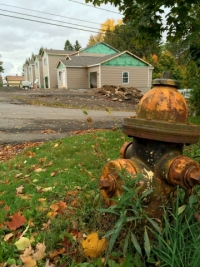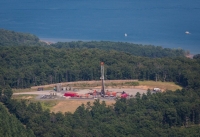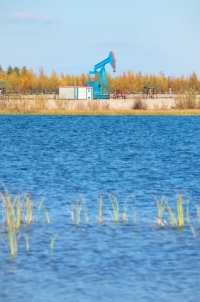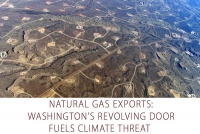If you're looking for the shale gas boom, northeastern Pennsylvania is the place to start.
The Marcellus is the largest and fastest growing shale gas play in the U.S. and more than half of its 50 most productive wells were drilled in Susquehanna County in the northeast. Susquehanna and neighboring Bradford County produced 41 percent of all Marcellus gas this June.
While drilling is down in other shale gas plays across the US, with major oil companies selling off their stakes and CEO's expressing regret for buying in, the Marcellus has bucked some of the downward trends so far.
A recent report from the Post Carbon Institute, “Drilling Deeper: A Reality Check on U.S. Government Forecasts for a Lasting Tight Oil and Shale Gas Boom,” has grave warnings about the Energy Information Administration's figures nationwide, concluding that two-fifths of the shale gas the agency expects to be produced between now and 2040 will likely never materialize. While many high-profile shale gas plays have already peaked in terms of gas production per well, the Marcellus appears to be an outlier in terms of productivity, researcher David Hughes concludes.
Enormous amounts of shale gas are being produced in Pennsylvania. In the first six months of this year, drillers here pumped 2 trillion cubic feet of gas. And much of this gas came from the Marcellus shale's twin sweet spots, in the Northeast and Southwest corners of the state.
In the whirlwind of activity, some locals in here struck it rich – those who owned large tracts of land and negotiated their deals at exactly the right moment. Driving through the county, it seems like every back road has a red-and-white permit sign marking a shale gas well, a water impoundment, or other Marcellus-related infrastructure.



























